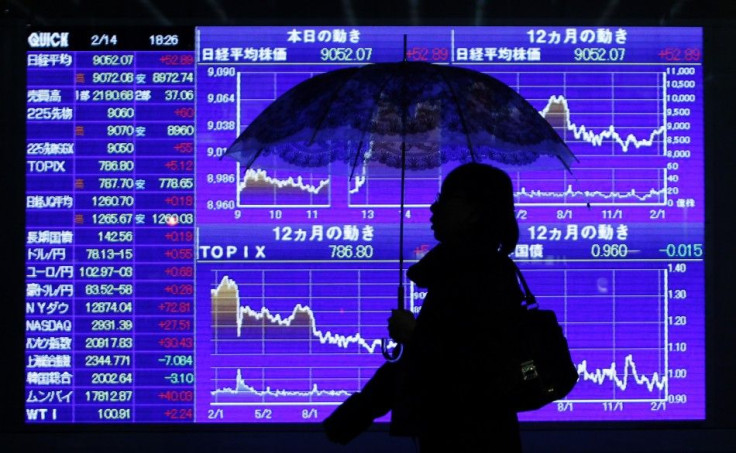Asian Markets Rise As Euro Zone Concerns Over Greek Exit Ease

Asian markets rose Monday as fears that Greece might leave the euro zone were soothed somewhat with Greek opinion polls published over the weekend showed the pro-bailout conservative party leading by a margin.
The Chinese Shanghai composite index climbed 1.19 percent or 27.81 points to 2361.37, and Hong Kong's Hang Seng rose 0.47 percent, or 87.58 points, to 18800.99. India’s BSE Sensex rose 0.81 percent, or 131.99 points, to 16,349.81 and Japan's Nikkei Stock Average marginally climbed 0.15 percent, or 12.76 points, to 8593.15. South Korea’s Kospi was closed for a holiday.
Market sentiment was positive after a series of opinion polls released in Greece over the weekend showed that the conservative party, New Democracy, supporting the bailout plan, had a lead of between 0.5 and 5.7 points over the anti-bailout radical left, Syriza.
There were serious concerns last week that parties opposing austerity measures in Greece would gain majority in the fresh elections to be held on June 17. If that happens, Greece will not receive a bailout package, causing its banking system to collapse and leading to its exit from the euro zone.
However, it is too early to say that the markets are completely out of the red as the uncertainties about the fate of Greece persuade investors to show a high degree of cautiousness. Doubts have been raised by investors on the impact on the rest of the region if Greece is forced to leave the euro zone. Investors are worried that they could be exposed to losses within their government bond portfolio and also that the banking system will have to pay a heavy price if such a situation arises.
Analysts also point out that investors need to look at the available scenarios other than Greece remaining within the euro zone or exiting. “A Syriza-led government comes to power, repudiates the bailout plan and so Greece receives no further support from either the EU/IMF or the ECB; but, the country decides to keep the EUR as its currency. Its status would be similar to that of Montenegro or Kosovo. This would facilitate the possible strategy of the new Greek government: insisting on a suspension of payments to creditors rather than plain default, and promising that in a second stage the country would recover its full membership of the euro zone,” Credit Agricole said in a note.
© Copyright IBTimes 2024. All rights reserved.











